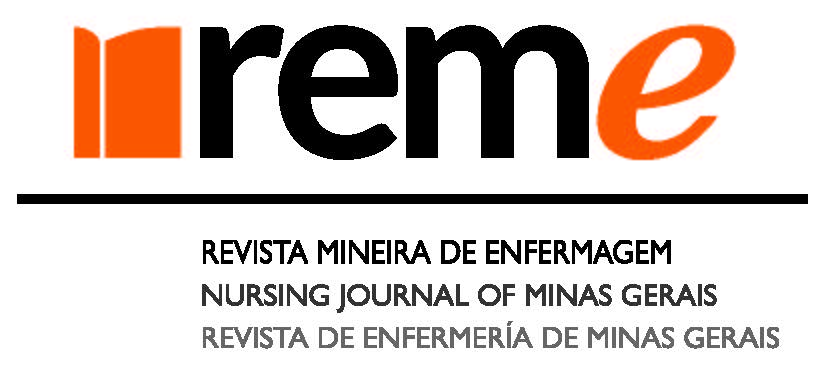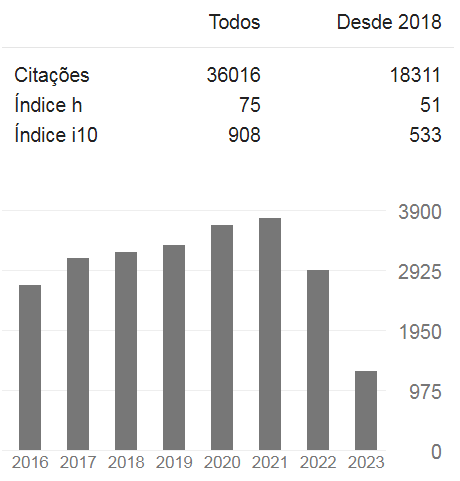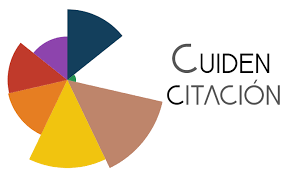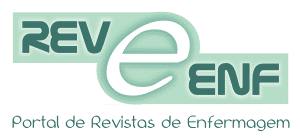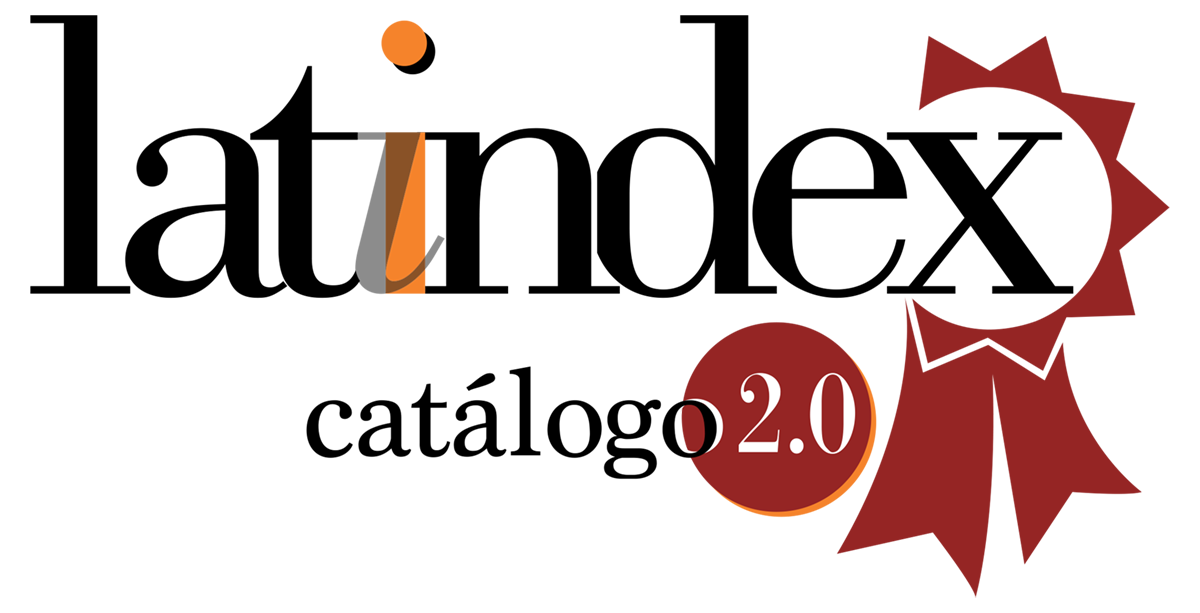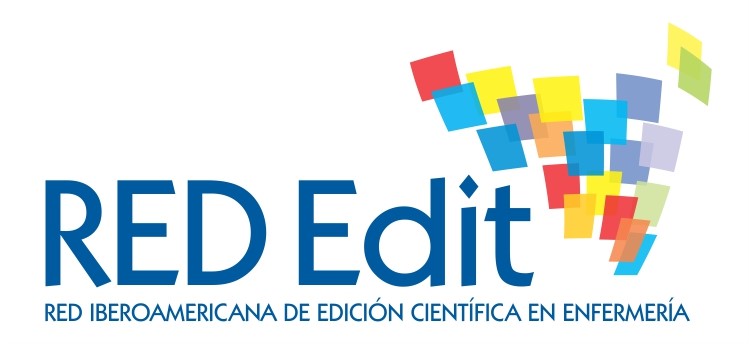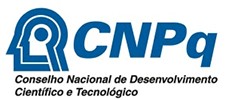The family meaning on organ donation
An analysis based on the symbolic interactionism
DOI:
https://doi.org/10.35699/2316-9389.2024.38932Keywords:
Transplantation, Obtaining Tissues and Organs, Family Relations, Decision-Making, Life-Changing EventsAbstract
Objective: to understand the meaning that the family gives to the experience of having consented to organ donation. Method: qualitative study, based on the theoretical framework of Symbolic Interactionism and the methodology of Grounded Theory. It was carried out with 14 family members who consented to the donation of multiple organs. Data collection took place between July and November 2019, through intensive interviews recorded and transcribed in full, in addition to a research diary. To form the sample groups, the criteria proposed by the Grounded Theory were followed. These groups were organized by the MAXQDA software, and, for their analysis, the first two stages of coding were used: open and focused. Results: an analytical process explaining the experience of the family that consented to the donation of a family member's organs through loss and grief emerged, resulting in the concept that guides a model of care: “Minimizing suffering by exercising solidarity”, supported by three categories: experiencing the impact of the diagnosis of brain death; motivating oneself to donate organs; and Meaning organ donation. Conclusion: the meanings that families gave to the experience of consenting to organ donation were understood, with the diagnosis of brain death and the time to complete the protocol associated with feelings of anguish, distress, and hope that death would not occur; to the body as an inviolable temple and to solidarity as a way of alleviating suffering and facing grief.
Downloads
References
Ministério da Saúde (BR). Doação de Órgãos: transplantes, lista de espera e como ser doador. Brasília, DF: Ministério da Saúde; 2020[citado em 2020 jan. 15]. Disponível em: http://www.saude.gov.br/saude-de-a-z/doacao-de-orgaos. 2. Ahmadian S, Rahimi A, Khaleghi E. Outcomes of organ donation in brain-dead patient’s families: ethical perspective. Nurs Ethics [Internet]. 2019[citado em 2019 nov. 15];26(1):256-69. Disponível em: https://pubmed.ncbi.nlm.nih.gov/28592187/ 3. Fernandes MEN, Bittencourt ZZLC, Boin IFSF. Experiencing organ donation: feelings of relatives after consent. Rev Latino-Am Enferm [Internet]. 2015[citado em 2019 nov. 15];23(5):895-901. Disponível em: https://doi.org/10.1590/0104-1169.0486.2629 4. Orøy A, Strømskag KE, Gjengedal E. Approaching families on the subjecto for organ donation: a phenomenological study of the experience of health care professionals. Intensive Crit Care Nurs [Internet]. 2013[citado em 2020 fev. 15];29(4):202–11. Disponível em: https://doi.org/10.1016/j.iccn.2013.02.003 5. Dincer PC, Birtan D, Arslantas MK, Altun GT, Ayanoglu HO. The Effect of Standardized Interviews on Organ Donation. Exp Clin Transplant [Internet]. 2018[citado em 2020 jun. 10];16(Supll 1):51-4. Disponível em: https://doi.org/10.6002/ect.TOND-TDTD2017.O21 6. Siminoff LA, Molisani AJ, Traino HM. A Comparison of the Request Process and Outcomes in Adult and Pediatric Organ Donation. Pediatrics [Internet]. 2015[citado em 2020 jun. 10];136(1). Disponível em: https://doi.org/10.1542/peds.2014-3652 7. Kentish-Barnes N, Cohen-Solal Z, Souppart V, Cheisson G, Joseph L, Martin-Lefèvre L, et al. Being Convinced and Taking Responsibility: A Qualitative Study of Family Members’ Experience of Organ Donation Decision and Bereavement After Brain Death. Crit Care Med [Internet]. 2019[citado em 2020 maio 15];47(4):526-34. Disponível em: https://doi.org/10.1097/CCM.0000000000003616
Kentish-Barnes N, Chevret S, Cheisson G, Joseph L, Martin-Lefèvre L, Larbi AGS, et al. Grief Symptoms in Relatives Who Experienced Organ Donation Requests in the ICU. Am J Respir Crit Care Med [Internet]. 2018 [citado em 2020 maio 15];198(6):751–8. Disponível em: https://doi.org/10.1164/rccm.201709-1899OC
Charon JM. Symbolic interacionism: na introduction, an interpretation, an integration. 3ª ed. New Jersey: Pearson Prentice Hall; 2004.
Charmaz K. A construção da teoria fundamentada: guia prático para análise qualitativa. Porto Alegre: Artmed; 2009.
Souza VRS, Marziale MHP, Silva GTR, Nascimento PL. Translation and validation into Brazilian Portuguese and assessment of the COREQ checklist. Acta Paul Enferm.
[Internet]. 2021[citado em 2021 nov. 21];34:eAPE02631. Disponível em: https://doi.org/10.37689/acta-ape/2021AO02631
Lacerda MR, Santos JLG. Teoria fundamentada nos Dados: bases teóricas e metodológicas. Porto Alegre: Moriá; 2019.
López JS, Soria-Oliver M, Aramayona B, García-Sánchez R, Martínez JM, Martín MJ. An Integrated Psychosocial Model of Relatives’ Decision About Deceased. Front Psychol [Internet]. 2018[citado em 2019 nov. 10];10(9):408. Disponível em: https://dx.doi.org/10.3389%2Ffpsyg.2018.00408
Bitencourt ALP, Quintana AM, Velho MTAC. A perda do filho: Luto e doação de órgãos. Estud Psicol [Internet]. 2011[citado em 2021 jan. 13];28(4). Disponível em: https://doi.org/10.1590/S0103-166X2011000400004
Cajado MCV, Franco ALS. Organ and tissue donation for transplantation: subjective impasses before the family decision. Rev Baiana Saúde Pública [Internet]. 2017[citado em 2019 nov. 15];40(2). Disponível em: https://doi.org/10.22278/2318-2660.2016.v40.n2.a2164
Fernández-Alonso V, Palacios-Ceña D, Silva-Martín C, García-Pozo A. Experiência de famílias de doadores falecidos durante o processo de doação de órgãos: um estudo qualitativo. Acta Paul Enferm [Internet]. 2022[citado em 2021 jan. 13];35:eAPE039004334. Disponível em: http://dx.doi.org/10.37689/acta-ape/2022AO004334
Sandri JVA, Kuse EA. The meaning of yes' for the family in the organ donation process. Nursing (Säo Paulo) [Internet]. 2019 [citado em 2020 jan. 12];22(254):3047-51. Disponível em: http://www.revistanursing.com.br/revistas/254/pg30.pdf
Carvalho NS, Sousa J, Veloso LC, Ataíde KMN. Nurses’ professional performance in the organ’s donation and procurement process in eligible donors. Rev Enferm UFPI [Internet]. 2018[citado em 2020 jan. 12];8(1):23-9. Disponível em: https://doi.org/10.26694/2238-7234.8123-29
Prado RT, Leite JL, Silva ÍR, Silva LJ. Communication in the management of the nursing care before the death and dying process. Texto & Contexto Enferm [Internet]. 2019[citado em 2020 jan. 12];28:e20170336. Disponível em: https://doi.org/10.1590/1980-265x-tce-2017-0336
Marinho CLA, Conceição AICC, Silva RS. Causas de recusa familiar na doação de órgãos e tecidos. Rev Enferm Contemp [Internet]. 2018[citado em 2020 jan. 10];7(1):34-9. Disponível em: http://dx.doi.org/10.17267/2317-3378rec.v7i1.2008
Calikoglu E, Salcan S, Akcay H, Gumus A, Aydin O. Knowledge and Attitudes of Intensive Care Nurses on Organ Donation. EJMO [Internet]. 2018[citado em 2020 maio 15];2(4):238-42. Disponível em: https://doi.org/10.14744/ejmo.2018.0031
Bezerra MSM, Souza SPS, Barbosa MARS, Souza ÍP. Spirituality and religiosity as coping strategies for illness and death. Ciênc Cuid Saúde [Internet]. 2018[citado em 2020 maio 15];17(4). Disponível em: https://doi.org/10.4025/cienccuidsaude.v17i4.45155
Ministério da Saúde (BR). Lei nº 9175, de 18 de outubro de 2017. Estabelece as diretrizes para doações de órgãos, tecidos, células e partes do corpo humano para fins de transplante e tratamento. Diário oficial da União, 18 out. Brasília; 2017.
Rosa N, Garrafa TV. Bioética e Confidencialidade do Doador Cadáver em Transplantes Renais no Brasil. Rev Latinoam Bioet [Internet]. 2011[citado em 2019 nov. 20];11(2):98-105. Disponível em: http://www.scielo.org.co/pdf/rlb/v11n2/v11n2a10.pdf
Additional Files
Published
How to Cite
Issue
Section
License
Copyright (c) 2024 REME-Revista Mineira de Enfermagem

This work is licensed under a Creative Commons Attribution 4.0 International License.

